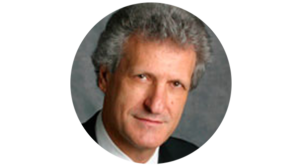Affordable housing, nebulous theme, no real plan
We have entered the last stages of the Mayoralty bye-election in Toronto. To suggest that it has become an election like no other states the obvious. It also teases one to ask if there is a disconnect between perceptions of purpose and mechanisms for delivery on vision. In sum, are we being asked to vote for “something not on the table”?
Candidates have taken to talking about “stopping” Doug (as in, Premier) Ford, as if he were one of the select 102 on the list. He’s not. However, not to wax prosaic, he is “the Lord” of all things municipal; and “what the Lord giveth, the Lord taketh away”. That is how our Constitution works.
Premier Ford had negotiated “strong mayor powers” with the province’s [two] biggest cities prior to the last municipal election, nine months ago. As per report by Mariella Policheni report on Bill 39 yesterday (Ontario, poteri forti ad altri 26 sindaci), those powers have been extended to 29 other municipalities – 26 of which have accepted.
One of the key items in Bill 39, according to an online article published, June 16, 2023, in STOREYS (a Real Estate News medium), effectively cedes to the province ultimate authority over local planning for residential housing.
If true, that would explain in part the focus on “affordable housing” as a prominent issue in the mayoralty campaign. Whether “affordability” is an achievable goal for a local planning entity unable to mitigate market forces like land costs, price of money, affordability of materials, labour costs and relate “soft costs” for the forgoing is another matter. According to Real Estate practitioners, after land costs, the total for “affordability” will start in the $600 psf range and go up from there.
Better to blame Ford than to draw up a “how to” plan that might wilt under scrutiny. An ensuing problem is that the electoral campaign then takes on the worst characteristics of “assassination by association”.
That’s where we appear to be today: some otherwise valid candidates are now identifying themselves as the only one(s) capable of stopping another candidate. When all things are said and done, such tactics belie a tiredness in the campaign that attempts to coalesce the argument into a “we versus they decision”.
Obviously, “they” are the “bad guys”. The simple truth is that, unless “the good guys” – the winning candidate – can secure the support of eight members of Council, there will be no action… housing or otherwise.




